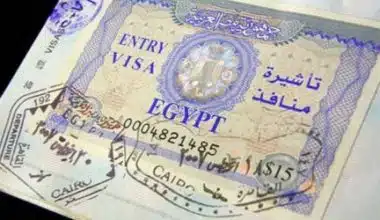A U.S. passport is your ticket to exploring the world, but it’s not forever. If you’re planning international adventures or simply curious about its duration, you might be wondering how long a U.S. passport is valid. However, the US passport’s validity varies based on its holder’s age and type of document. There are different types of passports and validity periods, which are discussed in this article, including the reasons you need a passport and factors that determine your validity.
How Long is a US Passport Good For?
A US passport is valid for a specific time, and its expiration date depends on when it was issued or renewed. The validity of a US passport can vary depending on the age of the passport holder and the type of passport document. A US passport is valid for 10 years for individuals aged 16 and above and 5 years for those under 16, with the latter valid for 5 years from the issuance date.
Types of US Passports With Validity Breakdown
Here is a breakdown of the validity periods for different types of US passports:
#1. Adult Passport Book
For adults aged 16 and older, a passport book is valid for 10 years from the date of issue.
#2. Adult Passport Card
The passport card, which can only be used for land and sea travel between the US, Canada, Mexico, the Caribbean, and Bermuda, is also valid for 10 years for adults aged 16 and older.
#3. Child Passport Book
For children under the age of 16, a passport book is valid for 5 years from the date of issue.
Factors That Determine How Long A US Passport Is Valid For
Aside from the expiration of a US passport after 10 years for individuals aged 16 and above and 5 years for those under 16, other factors contribute to making the US passport no longer good before the expiration date. These factors include
#1. Damage
If a passport becomes significantly damaged, torn, or mutilated, it may no longer be considered valid. Damage to the passport can include water damage, torn pages, or any alteration that makes the information on the passport unclear or illegible.
#2. Loss or Theft
If a passport is lost or stolen, it is no longer valid. In such cases, it is important to report the loss or theft to the appropriate authorities and follow the necessary steps to obtain a new passport.
#3. Revocation or Cancellation
The US government has the authority to revoke or cancel a passport in certain circumstances. This can occur if the passport was obtained fraudulently if the passport holder is involved in criminal activities, or if there are concerns related to national security.
#4. Change in Personal Information
If there are significant changes in personal information, such as a legal name change, gender transition, or significant changes in appearance, the passport may no longer be considered valid. In such cases, it is necessary to update the passport with the correct information.
#5. Expiration of Freely Associated States Passports
Citizens of Freely Associated States who entered the United States lawfully years ago may have passports that have expired. In such cases, their passports are no longer considered valid for travel.
#6. Failure to Meet Entry Requirements
Some countries have specific entry requirements, including passport validity rules. If a US passport does not meet the entry requirements of a particular country, it may no longer be considered valid for travel to that destination.
#7. Ineligibility for Renewal
There are certain circumstances where a US passport cannot be renewed. If any of the following conditions apply, you cannot renew your passport and must instead apply for a new one: if your passport was issued more than 15 years ago, if your passport was issued when you were under the age of 16, if your passport was lost or stolen, or if your passport is significantly damaged.
#8. Change in Immigration Status
If a person’s immigration status changes, their passport may no longer be valid. For example, if a non-immigrant visa holder becomes an immigrant or obtains permanent residency, their passport may no longer be valid for certain types of travel.
#9. Ineligibility for Reentry to the United States
US citizens who have engaged in certain criminal activities or violated immigration laws may face restrictions on reentering the United States. In such cases, their passports may not be considered valid for reentry until the issues are resolved.
#10. Failure to Pay Child Support
In certain cases, individuals who owe significant child support payments may have their passports revoked or denied until the child support obligations are fulfilled.
Things to Do When US Passports Are No Longer Good
When a US passport is no longer good, there are several steps you can take:
#1. Renew Your Passport
If your passport has expired or is about to expire, you can renew it to continue using it for international travel. The renewal process can be done either by mail or in person, depending on your eligibility and preference.
#2. Replace a Lost or Stolen Passport
If your passport has been lost or stolen, it is no longer valid and should be reported immediately. You can report a lost or stolen passport to the US Department of State and follow the necessary steps to replace it. If your lost or stolen passport is expired, it is no longer valid, and you do not need to submit it for replacement.
#3. Consider Alternate Identification
If your passport is no longer valid and you need identification for other purposes, such as domestic travel within the US, you may need to consider alternate forms of identification. In the United States, a valid driver’s license or state-issued identification card can often serve as an alternative form of identification.
#4. Contact the US Embassy or Consulate
If you are abroad and your passport is no longer valid, it is important to contact the nearest US embassy or consulate for assistance. They can guide you on how to proceed and help you with the necessary steps to obtain a new passport.
#5. Check Entry Requirements for Travel
If your passport is no longer valid and you have upcoming travel plans, it is crucial to check the entry requirements of the country you plan to visit. Many countries require visitors to have a valid passport with a certain amount of remaining validity, typically at least six months beyond the dates of travel. If your passport does not meet the entry requirements, you may need to apply for a new passport before traveling.
#6. Apply for a New Passport
If your passport was issued before your 16th birthday, issued more than 15 years ago, damaged, lost, or stolen, you cannot renew it and must instead apply for a new passport in person using Form DS-11.
#7. Check Passport Validity Rules For Your Destination
Some countries require that your passport be valid for at least six months beyond the date of your trip. Therefore, it is recommended to check the entry and exit requirements for the country or countries you plan to visit before traveling.
#8. Obtain a Passport Card
If you frequently travel by land or sea to Canada, Mexico, Bermuda, or the Caribbean, you may want to consider obtaining a passport card in addition to your passport book. A passport card is a wallet-sized card that can be used to enter the United States from Canada, Mexico, the Caribbean, and Bermuda at land border crossings or sea ports of entry.
#9. Check Your Passport Application Status
If you have applied for a new passport or a passport renewal and have not received it yet, you can check your application status online or by phone.
#10. Upgrade To Expedited Service
If you need your passport sooner than the standard processing time, you can upgrade to expedited service for an additional fee.
Reasons For Applying For A US Passport
Renewing or applying for a US passport once it is no longer good is important for several reasons
#1. International Travel
A valid passport is essential for international travel. Without a valid passport, you may not be allowed to enter or exit a foreign country. Renewing or applying for a new passport ensures that you have the necessary travel documents to explore the world and visit different countries.
#2. Identification
A passport serves as a widely accepted form of identification, both domestically and internationally. It is an official document that verifies your identity and citizenship. Renewing or obtaining a new passport ensures that you have a valid and up-to-date identification document.
#3. Emergency Situations
Having a valid passport is crucial in cases of emergencies that require immediate travel. Whether it’s a family emergency, a medical situation, or any other unforeseen circumstance that requires you to travel internationally at short notice, a valid passport allows you to do so without delays or complications.
#4. Visa Applications
Many countries require a valid passport as a prerequisite for obtaining a visa. If you plan to travel to a country that requires a visa, you will need a valid passport to initiate the visa application process. Renewing or applying for a new passport ensures that you have the necessary documents to proceed with visa applications.
#5. Proof of Citizenship
A passport serves as proof of US citizenship. It is an official document that confirms your status as a citizen of the United States. Renewing or obtaining a new passport helps maintain and establish your citizenship status.
#6. Compliance with Entry Requirements
Many countries have specific entry requirements, including passport validity rules. To ensure smooth entry into foreign countries, it is crucial to have a valid passport that meets the entry requirements of the destination. Renewing or obtaining a new passport helps ensure compliance with these requirements.
#7. Avoiding Travel Disruptions
Having a valid passport prevents travel disruptions and potential delays. Without a valid passport, immigration officials may refuse to let you enter the country, which could result in unanticipated costs, inconveniences, and missed opportunities.
#8. Flexibility for Future Travel
Renewing or obtaining a new passport provides flexibility for future travel plans. It allows you to be prepared for upcoming trips and take advantage of travel opportunities without the stress of last-minute passport applications or renewals.
#9. Convenience and Peace of Mind
Having a valid passport provides convenience and peace of mind. It allows you to travel internationally without worrying about the validity of your travel document. It also eliminates the need for last-minute passport applications or renewals, which can be stressful and time-consuming.
#10. Access to Consular Services
If you encounter any issues or emergencies while traveling abroad, having a valid passport enables you to seek assistance from the nearest US embassy or consulate. Consular services include help with lost or stolen passports, medical emergencies, legal assistance, and other support that may be required during your travels.
Consequences of Traveling with a US Passport No Longer Good
Traveling with an invalid US passport can have several consequences. Here are some of the potential outcomes:
#1. Travel Restrictions
Many countries require a valid passport for entry. If your US passport is no longer valid, you may be denied entry or face difficulties during immigration procedures.
#2. Limited Access to Services
Some services may require a valid US passport for verification purposes. For example, US credit and debit cards may not work in certain countries if you cannot provide a valid passport as identification.
#3. Difficulties in Traveling
Without a valid passport, you may encounter difficulties when traveling, such as being unable to board flights or cross international borders. This can disrupt your travel plans and cause inconvenience.
#4. Legal Implications
If you renounce your US nationality abroad without meeting the necessary conditions, the renunciation may have no legal effect. This can lead to complications in terms of your legal status and rights, including difficulties in traveling.
#5. Dual Nationality Challenges
If you hold dual nationality and one of your nationalities is no longer valid, you may face challenges related to travel and entry requirements. Different countries have different laws and regulations for dual nationals, and some countries may not permit dual nationality.
#6. Denial of Entry
Many countries require a valid passport to enter. If your US passport is expired or invalid, you may be denied entry at immigration checkpoints. This can result in being sent back to your country of departure or being detained until proper documentation is arranged.
#7. Inability to Obtain Visas
When applying for visas to visit other countries, a valid passport is typically required. If your US passport is no longer valid, you may face difficulties in obtaining the necessary visas for your intended destinations. This can prevent you from traveling to certain countries or participating in planned activities.
#8. Limited Consular Assistance
The US State Department provides consular services to US citizens abroad. However, if you are traveling with an invalid US passport, you may have limited access to consular assistance in case of emergencies, such as lost passports, accidents, or legal issues.
#9. Loss of Travel Insurance Coverage
If you have travel insurance, it typically requires a valid passport for coverage. In the event of an emergency or medical situation during your travels, an invalid passport may lead to denial of coverage or complications in processing insurance claims.
#10. Difficulty Returning to the US
If you are a US citizen and your US passport is invalid, you may face challenges returning to the United States. US citizens are generally required to present a valid US passport when entering the country. Immigration officials may subject you to additional scrutiny or questioning, and you may experience delays or even be denied entry.
How Many Years Does A Us Passport Expire?
A US passport is valid for 10 years if issued to someone who was 16 years old or older at the time of issuance, and 5 years if issued to someone under 16 years old. However, it’s important to check the entry requirements of your destination country, as some may require a passport to be valid for at least six months beyond the dates of travel. If your passport is damaged, lost, stolen, or issued more than 15 years ago, you will need to apply for a new passport in person.
How Long Do Most Passports Last?
The validity of passports can vary from country to country. However, most countries issue passports with a validity period of 5 to 10 years. It is important to note that some countries may have specific entry requirements regarding passport validity. For example, certain countries may require that your passport be valid for at least six months beyond your intended stay. This means that if your passport is set to expire within six months, you may be denied entry.
How Much Is A Passport Of 10 Years Validity?
The cost of a US passport with a 10-year validity can vary depending on several factors, such as whether it is a new application or a renewal, whether it is a standard application or expedited processing, and whether it includes additional services like passport cards or extra visa pages. The fee for a standard adult passport renewal is $110, while the fee for a new adult passport is $145. These fees do not include any additional services or expedited processing fees, which may incur additional costs.
What Happens If My US Passport Expires?
If a US passport expires, it is no longer valid for international travel. To continue traveling internationally, it is necessary to renew the passport before it expires. The renewal process involves submitting an application, supporting documents, and the required fee. If the passport has been expired for a long time or was issued when the holder was under 16 years old, a new passport may need to be applied for in person. While an expired passport can still serve as identification within the United States, some institutions may require a valid, unexpired passport.
Can I Return To The US With An Expired Passport?
If you are a US citizen and your passport has expired, you may not be allowed to use it for direct return to the United States. However, there have been temporary measures in place that allow US citizens with passports that expired on or after January 1, 2020, to use their expired passports for return travel to the United States until June 30, 2022. These measures were put in place to address travel difficulties caused by the global COVID-19 pandemic.
Can I Fly With An Expired Passport?
If you are traveling domestically within the United States, you may be able to fly with an expired passport. The Transportation Security Administration (TSA) allows passengers with expired passports to fly domestically, but they may require additional forms of identification to verify their identity.
Will My US Visa Expire If I Renew My Passport?
Renewing your passport will not automatically invalidate your US visa. You can continue to use a valid US visa that is in your expired passport along with your new valid passport for travel and admission to the United States. It is recommended to carry both your new passport and the expired passport containing the valid visa when traveling.
Conclusion
A US passport expires after 10 years for those 16 and older and 5 years for those under 16. When a US passport is no longer valid, you have options such as renewing your passport or replacing a lost or stolen passport. It ensures you have the necessary documents for international travel and verifies your identity. Traveling with an invalid US passport can lead to travel restrictions, limited access to services, travel difficulties, legal implications, and dual nationality challenges. Countries may deny entry, require verification for certain services, and face challenges in boarding flights or crossing international borders.
- GLOBAL ENTRY RENEWAL PROCESS: All You Need To Know
- DO YOU NEED A PASSPORT TO GO TO HAWAII?
- PLACES YOU CAN GO WITHOUT A PASSPORT IN 2023
- EGYPT VISA FOR US CITIZENS






